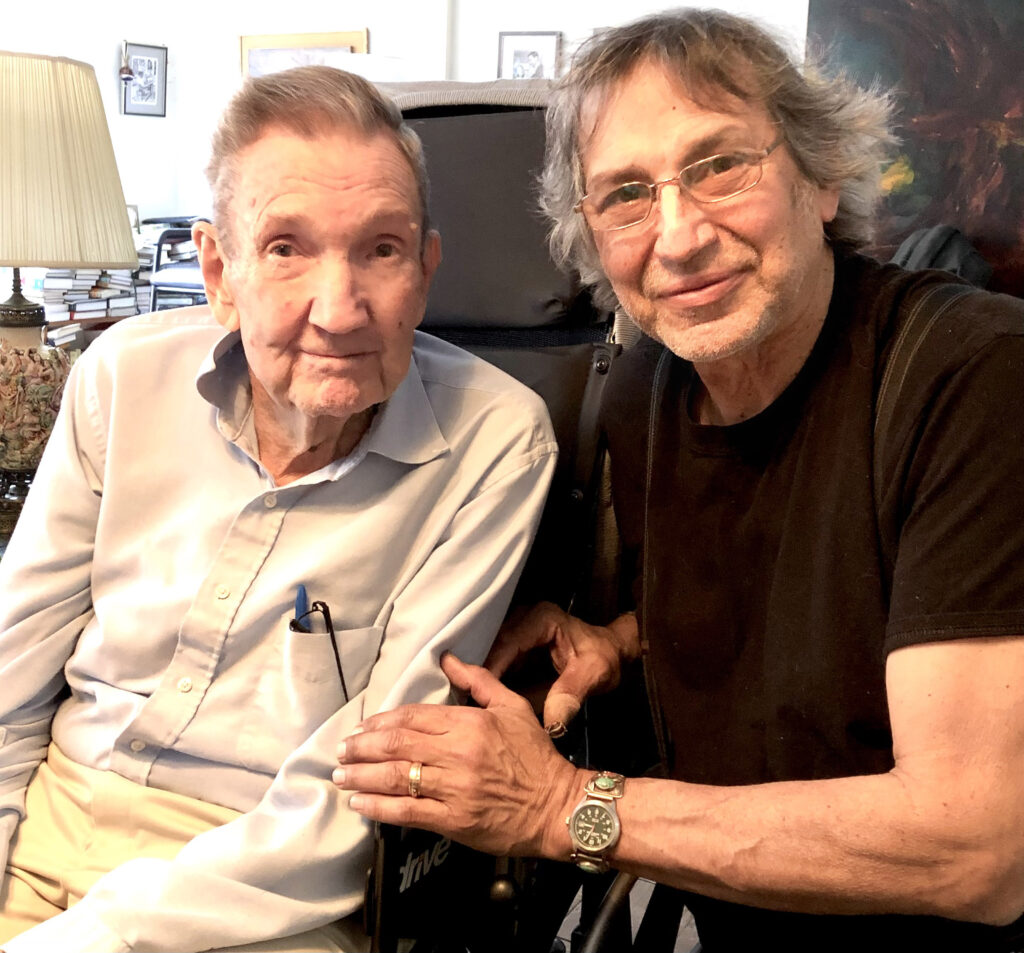A Great American – And Texan
Ramsey Clark In Long Line Of Lone Star Progressives

only film that recounts the life of the
Texan and LBJ attorney general who spent his last 50 years seeking to right wrongs
Ramsey Clark has always been one of my all-time heroes.

He came from a long line of Texas progressive (liberal) Democrats, starting with Speaker of the House Sam Rayburn and President Lyndon B. Johnson, which ended with George W. Bush’s defeat of Gov. Anne Richards.
What drove all of these politicians were two things – an absolute horror of the devastation of the Dust Bowl and Great Depression – which Rayburn and LBJ lived through – and a moral conviction to use politics to help people.
Their idol in this regard was Franklin Delano Roosevelt, whom Rayburn served and LBJ idolized. Their loyalty was not misplaced. LBJ was from the Texas Hill Country, which was one of the last areas in the United States without rural electrification – before FDR.
Think “The Grapes of Wrath.”
As LBJ had become FDR and Sam Rayburn’s protégé, Ramsey Clark became LBJ’s protégé – and was instrumental in drafting and enforcing some of LBJ’s signature legislation – namely the Voting Rights Act of 1965, which is currently under attack in 40 states, and the Civil Rights Act of 1968.
Ramsey Clark came from two distinguished Texas families.
Clark’s father served as U.S. attorney general from 1945 to 1949 under President Harry S. Truman, and then became a Supreme Court justice in August 1949. His maternal grandfather was William Franklin Ramsey, who served on the Supreme Court of Texas, while his paternal grandfather, lawyer William Henry Clark, was president of the Texas Bar Association.
Clark fought for the Marines in WW II, and went on to serve in both the Kennedy and Johnson administrations. Upon going into private practice, Clark became staunchly, even virulently opposed to what he saw as illegal and unnecessary United States aggression in the Mideast (Iraq), Libya, and the Balkans.
From a legal standpoint, he was, in my opinion, entirely right about Iraq and Libya, probably less so about the Balkans, which as a NATO- and U.N.-sanctioned intervention against what became an exercise in genocide.
A documentary was made about his life (by Oneonta filmmaker Joe Stillman), “Citizen Clark”, and he lived to see himself vindicated for being on the right side of the law and history, particularly about the invasion of Iraq, for which he thought Bush should have been impeached, the Voting Rights Act and the Civil Rights Act.
Like FDR, Sam Rayburn, LBJ and Anne Richards, Clark understood that, if justice was to be done peacefully in America, it would have to be done from the top down – meaning from the “establishment.” Ramsey Clark was clever enough and courageous enough to do that, and he was true enough to his calling to address the inequities wherever he found them, anywhere in the world.
Of his era and his type, only one remains: President Jimmy Carter. To quote Steinbeck’s Tom Jode: “I’ll be ever’where — wherever you look. Wherever they’s a fight so hungry people can eat, I’ll be there. Wherever they’s a cop beatin’ up a guy, I’ll be there. “
For 93 years, Ramsey Clark was there, all right or half wrong, but always in the fight.”
Chip Northrup is a Cooperstownian from Texas.


Good on Stillman for making the documentary
Correct on all counts, I loved LBJ too.